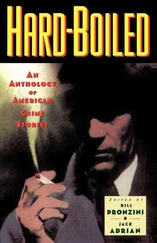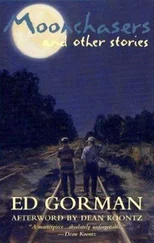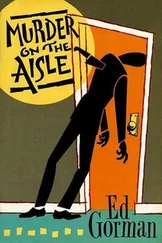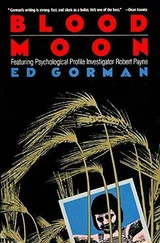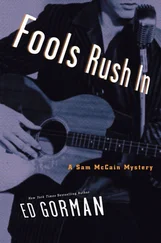I put my ear to the door, listened. What I heard was the wrong kind of silence.
“She’s gone.”
“What? No way, Dev.”
It was my turn to knock. No surprise, no response.
I put my hand on the doorknob, twisted it, and pushed into the room. A long metal coatrack on wheels, two comfortable armchairs, a long dressing table with the standard bulbs around the circular mirror. The lights were off. The dressing room was empty.
“Oh, shit,” Kristin said behind me.
I didn’t see anybody backstage. Black Velvet Elvis was now on to Buddy Holly. Kristin had followed me out of the dressing room. She was on her cell phone asking Ben if Susan was by chance in the lobby. “He’ll go check. And I’ll go out front and keep looking.”
At times like these, even though you like to think of yourself as a rational, sensible being, all the end-game fantasies start preying on your mind. Where was Susan? Maybe she was preparing her resignation speech, trying to beat the press to the revelation it would soon be sharing with the world. Might as well get it over with. Maybe sitting in a nearby bar right now scratching out her speech on note cards — she did everything on note cards — preparing herself for one final news release.
She came from the west end of the stage. I got on my cell and let Ben and Kristin know I’d found her. She was small against the back of the looming curtains. She had her head down, didn’t see me until she was ten yards away. She looked composed but pale. “I suppose you were looking for me, Dev. And I suppose Kristin told you I wouldn’t let her into the dressing room. That was silly. I owe her an apology.” The smile was faked but fetching. “I just went out for some air and I didn’t want company.”
I watched her carefully. Anxiety played in the gray gaze, but she managed to give the impression she was in control of herself.
“We just wanted to be sure you were all right.”
She laughed. “I have one mother already, isn’t that enough?”
I walked with her to the dressing room. The door was still open. She walked inside and started to close it. Black Velvet Elvis had stopped playing. Somebody was addressing the audience. Telling jokes that weren’t getting great responses.
I got as far as saying, “Susan, we really need to—”
“I’ll see you in a little while, Dev,” she said. And closed the door.
I went back to the ballroom and grabbed myself a scotch on the rocks. Kristin took my hand and led me around to meet numerous people. This was a good time for socializing. People were drinking but not yet drunk. The band started playing again, this time a series of Stones songs. An elderly man in a gold lamé evening jacket took Kristin to the dance floor and started bumping and grinding as she pretended not to notice. Every once in a while, though, she’d look over at me and smile and give me a helpless little shrug. If this guy got any more enthusiastic he was going to end up in traction. Then I saw her frown suddenly and I wondered why.
As soon as I sensed somebody stepping up on my right side I knew what had caused Kristin to frown. Greg Larson had invaded our fund-raiser.
Like his partner Monica Davies, Larson had come out of the entertainment business. He’d started life as a studio publicist but found gossip to be more fun and much more profitable. He wrote a syndicated column known for its nastiness and was frequently seen on talk shows with updates on anything that involved stars and scandals. He’d married three different aging stars and had managed to cadge a fair amount of change from each divorce. Eight years ago he’d turned his love of gossip toward politics and set up his own opposition research firm. He had connections all over the world and this made him especially valuable to politicians. He hired the usual suspects to do the grunt work of sifting through newspapers and other documents to dig up their kind of scandals while he practiced the kind of assaults that divorce detectives once did.
There was a senatorial reelection campaign two years ago. A friend of mine was working with an Iraqi vet named Bill Potter who’d lost both of his legs in Baghdad. Potter was ahead in the campaign until his opponent signed on with Larson. Larson did his usual job. Potter’s father was a college professor who’d written a number of antiwar pieces. Potter’s brother was gay. And Larson dug up a high-school photo of Potter grinning and smoking a joint and giving somebody the finger. Then he discovered that he had been treated for post-traumatic stress syndrome after his second tour in Iraq. Larson came up with a commercial he called “Family Values” — Potter’s family — a pinko father, a queer brother, and a dope-smoking smart-ass who couldn’t handle a couple of tours in Iraq without needing some psychological help. So he’d lost a couple of legs — he was still a whiner and a candy ass. It was ugly and it worked. Larson’s man had started twenty points behind and ended up winning by nine points.
“Nice crowd.”
“It was till you got here, Larson.”
“Aw, still bitter about that commercial, are you?”
Larson had the look of a Wall Street CEO, one whose fleshy body needed a lot more time in the gym and a lot less time at the table. But he had the hard good looks and the silver-gray hair that kept him dominant even in the company of younger men — younger men more ruthless than he was.
“Heard you were in town and just thought I’d stop by to say hello.”
In idle moments I’d had many daydreams of smashing his face in. Back when I was in army intelligence and investigating the sins of various officers I frequently met Larson’s type. They were usually West Pointers and they were convinced of their superiority based on little more than that they knew the secret handshake of that institution. Their weapon was the sneer. To question them was to challenge them as they had not been challenged since they’d graduated. They would always bring up West Point at the first opportunity and commiserate with me because I’d never had the privilege of attending there myself. Putting me in my place, of course. I’d had a lot of daydreams of smashing them in the face, too.
“You always wear a dinner jacket?”
“Believe it or not, I’ve got a dinner party to go to tonight. It’ll be a little higher class than this, Conrad, but I have to admit I haven’t seen any of your guests eating with their hands yet. So I’m impressed.”
He hadn’t stopped just to say hello. We’d had too many near fistfights for him to be comfortable. One night in Chicago I’d gone so far as to throw him up against a wall. We had both been pretty drunk. Both staffs had jumped between us, stopping the fun.
“You haven’t seen Monica around here tonight, have you?”
“Monica? What the hell would she be doing here?”
For once he’d dropped his drollery. “There’s something going on. I don’t know what it is yet, but it’s got me worried.”
“Why would I care what happens to you and Monica?”
The smirk was back. “Because, old boy, your people may be involved in it, too.”
But I was sick of him now and his game, whatever it was.
“Hold this,” I said, pushing my empty glass into his hand and walking away quickly. It is small victories like this that make life worthwhile.
Around ten o’clock, after the dinner and the speeches, the band started playing again and Kristin forced me onto the dance floor. For fast songs I have invented a series of miniature movements that to the casual eye seem to be what you could call dancing. But if you look carefully you’ll see that I’m actually standing in one place and cleverly using elbows and hips to fool any dance critics who might be looking on.
“C’mon, Dev, move around a little. Look at me.”
Читать дальше
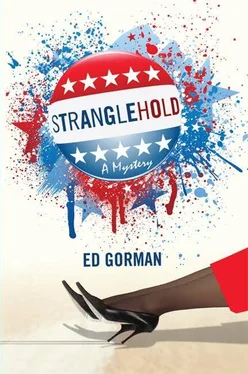


![Аманда Горман - The Hill We Climb [calibre]](/books/384311/amanda-gorman-the-hill-we-climb-calibre-thumb.webp)
